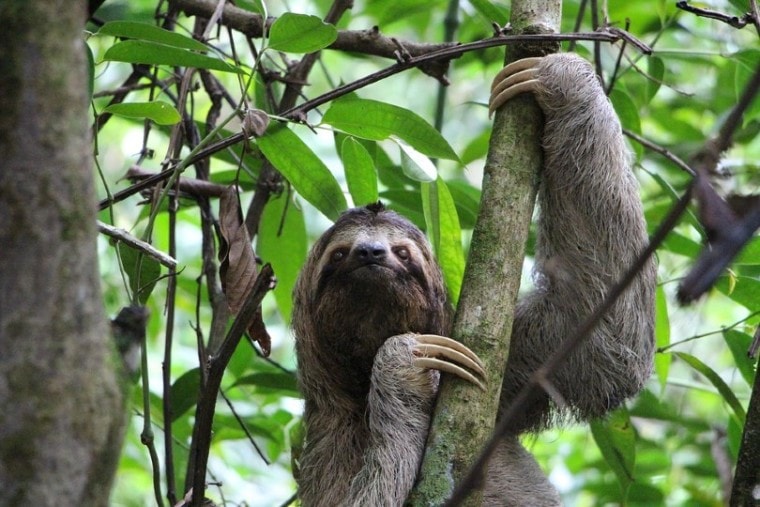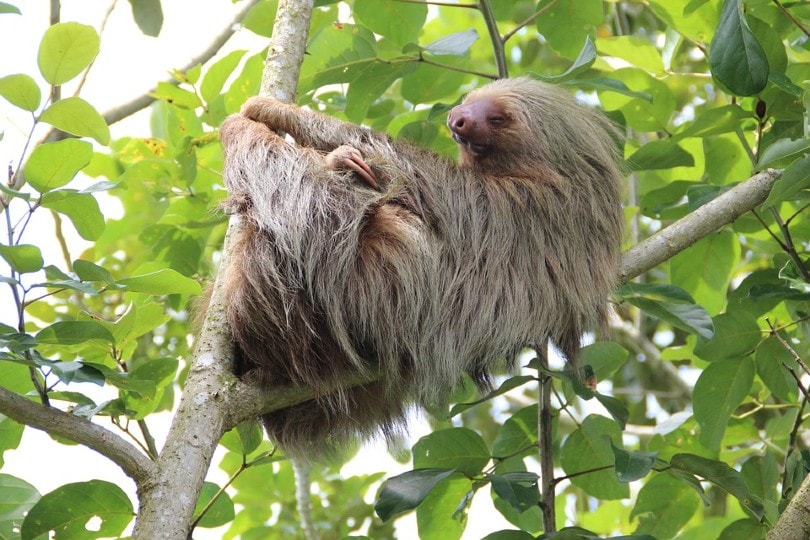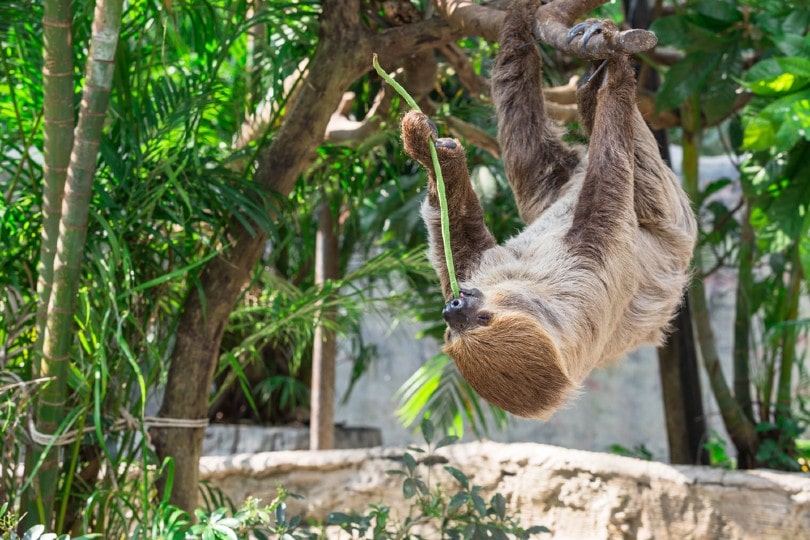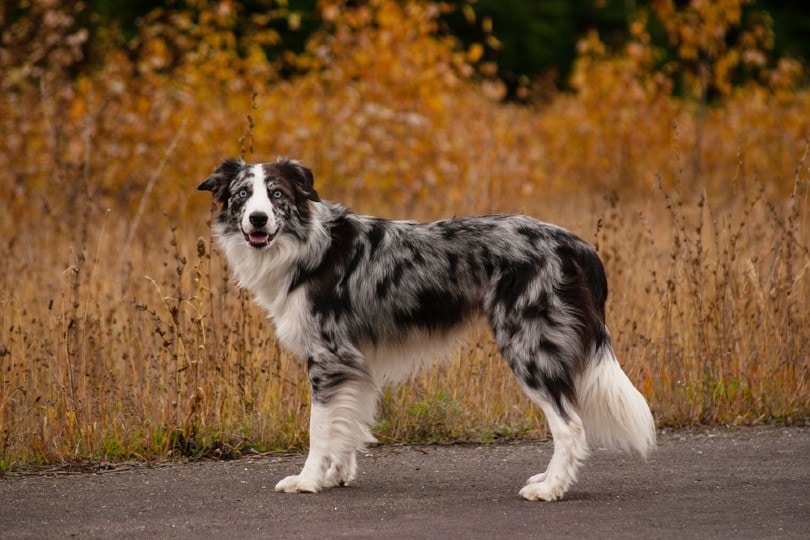
Most of us are familiar with sloths as the slow-moving, lazy animals who spend their lives hanging upside down. You might also be aware that baby sloths are likely one of the cutest animals you will ever lay eyes on. The thought might occur to you to get one as a pet. Yes, they are undeniably cute but do sloths make great pets?
In this case, the answer is no. Sloths don’t make great pets and shouldn’t be kept in captivity, except by experienced exotic animal keepers. Sloths require specialized food, housing, and vet care, none of which are easy to find or cheap to pay for.
Keep reading to learn more details about why sloths don’t make great pets.
The 6 Reasons Why Sloths Don’t Make Great Pets
Even though they look easy-going and snuggly, keeping a sloth happy and healthy is anything but simple. Here are some reasons why you should think twice before getting a sloth as a pet.
1. Sloths Are Wild Animals—and They Act Like It
Not only are sloths wild animals, but they are solitary ones as well. They won’t enjoy human contact, like petting or cuddling, the same way domesticated animals like dogs do. These just aren’t normal behaviors for a sloth and are more likely to stress them out or scare them than anything else.
It can be hard to tell if a sloth is stressed because their stress reaction is usually just to hold still. Just because you see a cute picture of a sloth and a human interacting doesn’t mean the sloth is enjoying it!
And don’t assume sloths are always easy-going just because they move slowly. Both their claws and teeth are large and sharp, and a scared or angry sloth can do serious damage to a person.
Domestic animals like dogs, cats, and horses learned how to live happily with humans over time. Sloths and other wild animals haven’t, and that’s the biggest reason they don’t make good pets.

2. Pet Sloths Aren’t Always Legal
Depending on where you live, it might be against the law to keep a sloth as a pet. If it is legal, you might need a special permit or license and have to follow restrictions like not moving your sloth across state lines.
Even if you can legally own a sloth, legally buying one can present a challenge as well. Sloths taken from the wild cannot be legally sold as pets. The only way to legally buy a sloth is to purchase a captive-bred animal, usually a baby. However, many responsible sloth breeders won’t sell an animal to anyone but a licensed zoo or wildlife keeper.
Unfortunately, demand for keeping wild animals like sloths as pets has resulted in a booming illegal pet trade business. Breeding captive sloths is a slow process that hasn’t been able to keep up with the demand for cute baby sloths. Because of this, more and more wild sloths are being taken from their natural habitat to serve as breeding stock for pet sloths. The number of sloths in the wild is threatened by this pet trade.
Consider carefully whether owning that cute baby sloth is worth potentially supporting a business that threatens their species with extinction in the wild.
3. Sloths Need to Live in Trees and Are Hard to Feed
Because sloths are meant to live in trees, they can’t walk well on the ground. Pet sloths need a lot of space and a lot of places to climb and hang in order to feel safe. Ropes and trees in their living area are a must. In the wild, sloths live in the rainforest, so they do best in a warm, humid environment. Ideally, a pet sloth needs a living space with a similar climate.
Feeding a sloth is also complicated. Many pet sloths have stomach problems because it’s so hard to mimic their natural diet in captivity. In the wild, sloths forage for leaves, fruits, and other plant materials. Captive sloths usually have to be fed a specially formulated commercial diet which can be hard to buy, supplemented with other fruits, vegetables, and protein sources such as mealworms.

4. Baby Sloths Will Take Up All Your Time
Even as babies, sloths do everything slowly. While the idea of bottle feeding a baby sloth might sound adorable, how about if you have to spend 30 minutes doing it, every 2 to 3 hours around the clock until they are 6 months old? Even after bottle feeding is done, baby sloths won’t be able to fully take care of themselves until they reach at least 1 year old.
Unlike many other animals, hand-raised baby sloths usually aren’t going to grow up tame and willing to be handled. By the time they become adults, the natural solitary instincts of the sloth will take over and they will start to avoid human contact.
If you are prepared to commit the time and energy to raise a baby sloth, you should also be aware it’s still probably not going to make the adult sloth a good pet.
5. A Sloth Vet Is Hard to Find

Finding a veterinarian knowledgeable about any exotic pet can be tough, but finding one to care for a wild animal like a sloth can be even harder. You may have to find a zoo animal veterinarian or go to a veterinary college to find a specialist who can take care of your pet sloth. Before you commit to bringing home a pet sloth, make sure you know where to take them if they need medical care.
6. Sloths Live a Long Time
Sloths may live for up to 40 years. That’s a long time to devote to the care of any pet, much less one that’s expensive and complicated to care for like a sloth. If you get a baby sloth, you can expect about a year when your sloth needs a lot of hands-on care, followed by up to 39 years where the adult sloth prefers to be left well enough alone.
 Final Thoughts
Final Thoughts
Even if you are prepared and willing to take on the responsibility of caring for a sloth, the reality is that they just don’t make good pets in the way that animals who’ve adapted to living with people do. If you do fall in love with sloths, which is understandable given how cute they are, consider other ways to be involved rather than keeping one as a pet. Maybe you can donate money to organizations working to save wild sloths.
Another option is to volunteer at a sloth rescue or sanctuary. You could also “adopt” or sponsor a wild sloth. Wild sloths face many challenges including, unfortunately, those caused by the demand for pet sloths, and these are just a few of the ways you can help.
You May Also Like:
Featured Image Credit by Myagi, Pixabay








